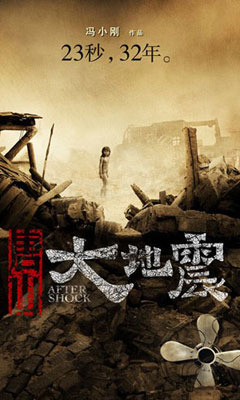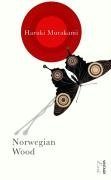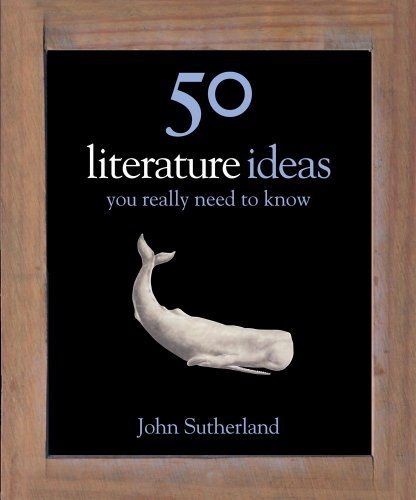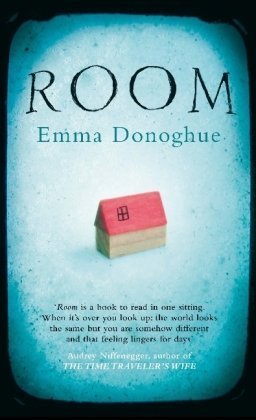Jerome Parisse's Blog, page 19
January 18, 2011
The tree
The Tree is a Franco-Australian film based on the novel by Judy Pascoe, "Our Father Who Art in a Tree". It is the story of a family who lives happily in a beautiful Queenslander (those houses built on stilts that can be found throughout Queensland), under a gigantic Moreton Bay Fig Tree (at least from what I can tell). But disaster strikes and the O'Neill head of family dies of a heart attack while driving his ute, which collides head-on with the tree. Dawn remains alone with their four children, including eight-year-old Simone who was very close to her dad and believes he has reincarnated in the tree. The tree becomes an obsession for Simone and a fight, but it will eventually bring the family together. The Tree is mostly about the grieving process that Simone and each member of the family goes through, but it is also a story of hope, of love, and of struggle. There are beautiful pictures of the Australian countryside in the film, the story is well constructed, and the characters are all credible. , daughter of the infamous French singer Serge Gainsbourg and of English singer Jane Birkin, both well-known in France (Gainsbourg, who died quite a few years ago, was a sex symbol for many French women, which, for me, remains one of life's biggest mysteries.) I don't particularly like Charlotte Gainsbourg – She seems to have inherited her father's bad looks and her mother's stupid airs – but I found her really good in this film. In fact, I think she is the one who makes it come together. Her accent is not Australian, of course, so she has been given a French background (it works). There is something poetic about this film; it has beauty, it has depth; and it goes (too) quickly. My only negative comment is about a piece of dialogue that takes place between Simone and her best friend: although Simone is only eight years old, she speaks as a grown-up person, which I found particularly annoying. But if The Tree is shown at a cinema near you, don't hesitate to go see it. It's definitely worth it.








January 13, 2011
Norwegian Wood by Haruki Murakami
Murakami's writing is beautiful. It is extremely evocative, subtle, yet powerful. Each scene draws you into a life of its own; you can smell it, feel it, hear it and see it, a feast for all senses. Yet Murakami's writing never draws attention to itself, and that's what I like about it. With Norwegian Wood he has created a story which will stay in the reader's mind for a long time. This novel is a coming of age story interwoven with a stunning love story, but it's also about grieving, life in Japan and a lot more. Toru Watanabe is learning to deal with the suicide of his best friend, aged seventeen, while falling in love with his ex-girlfriend, Naoko. Unfortunately Naoko is dealing with her own demons and has a nervous breakdown, from which she will never recover. But Toru's love is not diminished by this, if not strengthened. During his search for identity, meaning of life, love, pleasure, and sex, Toru encounters a variety of fascinating characters, from Storm-Trooper, his quirky room-mate, to Reiko, Naoko's patient friend in the asylum, and Midori, another student, the only one with a real anchor in the world. Murakami is a magician: the characters he creates are more real than normal novel protagonists, they are all quirky in their own way, all searching for something, all passionate, and all in desperate need of love. This novel moved me. I read it in one sitting. Very few writers are capable of creating atmospheres the way Murakami creates them. In fact, he is an artist, and I feel his writing is like Japanese sumie (black and white ink painting): with just a few simple strokes, a stunning picture appears in front of your eyes. Not too much, not too little, with enough room for imagination, this is what Murakami's writing is like. I did get annoyed at times with Toru's character, too passive for my liking, but this has to do more with my own character than with the book. After reading this novel, you will feel different, I can almost guarantee it. And this is what good writing should be all about, shouldn't it? Ten stars.








January 11, 2011
Xiamen and the Hakka tulous
Xiamen is another one of my favourite places in China. Xiamen is a coastal city of around 2.5 million people, located in the Fujian Province, South-East China. It lies just across from Taiwan. It is a city with a pleasant climate, nice beaches and quite a few things to see. A good part of the city is on Xiamen Island, the rest being on the mainland. Of interest is the smaller island of Gulangyu, car-free and home to around 20,000 people. Gulangyu was officially designated an International Settlement in 1903, and many countries built houses, consulates, hospitals and churches there. As a consequence, the architecture on the island is of Victorian-era style. Unfortunately many residences are derelict today, even if a large number of them are currently being rebuilt. Gulangyu is not only famous for its architecture, but also for its music, as many famous Chinese musicians are supposed to come from there. The island hosts China's only piano museum (200 pianos, from all shapes and eras); it also has an organ museum, many gardens and the Xiamen museum, formerly known as the Eight Diagrams Tower. I highly recommending strolling through the streets of Gulangyu, which can only be reached from Xiamen by ferry.


 About two hours from Xiamen, in Fujian Province, can be found the fascinating Hakka tulous, or "earth buildings", built between the 12th and the 20th centuries. Tulous are communal dwellings, usually rectangular or circular in shape, enclosed and fortified to defend their inhabitants from potential enemies. They are between three and five-story high and can house up to 80 families! Inside the building can be found communal kitchens, wells, storehouses, living and play spaces. Each family has their own quarters. A tulou is actually almost like a small city in itself. The structure is made of earth, mixed with stone, bamboo, wood and other materials. At the very top there are small windows for defensive purposes. Clusters of tulous can sometimes be found. Some of them are open to visitors. They give an insight of what life in China was in the recent past… and still is today for some.
About two hours from Xiamen, in Fujian Province, can be found the fascinating Hakka tulous, or "earth buildings", built between the 12th and the 20th centuries. Tulous are communal dwellings, usually rectangular or circular in shape, enclosed and fortified to defend their inhabitants from potential enemies. They are between three and five-story high and can house up to 80 families! Inside the building can be found communal kitchens, wells, storehouses, living and play spaces. Each family has their own quarters. A tulou is actually almost like a small city in itself. The structure is made of earth, mixed with stone, bamboo, wood and other materials. At the very top there are small windows for defensive purposes. Clusters of tulous can sometimes be found. Some of them are open to visitors. They give an insight of what life in China was in the recent past… and still is today for some.








January 10, 2011
The American (Forget about it)
"The American" is a 2010 movie by Director , staring . It is the story of an assassin who takes refuge in Italy after a botched job in Sweden, and who decides that the assignment he is given next will be his last. The plot is weak, the acting average, and the movie boring. Very little happens, you have to dig deep to find any emotion, and apart from some beautiful images of Italy, the film has little to offer. I can't help wondering how Clooney found himself acting in it. I saw it on a plane, and that was the right place for it.








January 8, 2011
Eat Pray Love (the film)
Liz Gilbert (She feels she does not know what she wants in life. Newly divorced, and after a failed new relationship, she decides to take a year off to spend a few months in Italy, in India, and in Bali. In Italy, she nourishes her body by rediscovering food – and pleasure. However, this is not satisfying and she travels to India where she spends time in an ashram, to pray and nourish her soul. Still unhappy, she travels to Bali, where she learns about the importance of balance, and finally discovers inner peace and, oh surprise, true love.
To be honest, I was disappointed by this film. The premise is not bad, even if somewhat simplistic: Balance is what you need in life, and balance means caring for your body and your soul at the same time. Nothing new here. You feel though as if the purpose of balance is to find the proper relationship; this is what Roberts is after from the very beginning. She finds balance in her life in Bali, and this means finding a man. All a bit too simple. This is not what a spiritual journey is all about, is it? Roberts is not very good in this movie; she does not convince. The plot is not there either, and the speed at which Roberts makes new friends is laughable; I couldn't help feel it was all very superficial, when what was intended was anything but that. The movie drags on, the different parts are disconnected, and the ending disappoints. I haven't read the book by Elizabeth Gilbert, which the film is based upon, and I wonder if it is more satisfying. If anyone's read it, please let me know!
This 2010 film was directed by .








January 7, 2011
50 literature ideas you really need to know, by John Sutherland
I was given "50 literature ideas you really need to know" by John Sutherland as Christmas present this year. I thought this was a great idea… and it shows how well those who gave it to me know me. On its inside cover, it says that the book is "the essential guide to all the important forms, concepts, themes and movements in literature". Does it attain its stated goal? I am not so sure… The "literature ideas" covered by Sutherland are varied and include hermeneutics, intentionalism, translation, genre, closure, allusion, defamiliarisation, metafiction, heteroglossia, or more simple aspects such as libel, lies, ghost-writers and the e-book. Each "idea" is covered in four pages, with a summary, some kind of definition, sometimes a few examples, and a lot of ranting. Don't expect to find clear definitions of each idea or to end up with clear concepts in your mind. If anything, you may end up more confused. Sutherland's writing is great, and this book feels more like a literature exercise than anything else. It certainly is NOT a practical guide. But it is fun to read, and a starting point for some of the chosen concepts. For others, such as the e-book or literature lies, it is disappointing. However, I have to be honest, it would be hard to cover any of those points in any meaningful way in only four pages.








January 6, 2011
Aftershock
I highly recommend "Aftershock", the first Chinese movie to play on IMAX, adapted  from a novel by Ling Zhang, and out on the screens in 2010. directed the movie, which tells the story of a family torn apart by the 1976 Tangshan earthquake that killed at least 240,000 people. You may never have heard or remember this terrible earthquake, but I guarantee you will after seeing the movie.
from a novel by Ling Zhang, and out on the screens in 2010. directed the movie, which tells the story of a family torn apart by the 1976 Tangshan earthquake that killed at least 240,000 people. You may never have heard or remember this terrible earthquake, but I guarantee you will after seeing the movie.
When both her son and daughter find themselves stuck beneath the same cement slab during the Tangshan earthquake,Yuan Ni must choose whom to save. She chooses her son, and this decision will shape the fate of her family for the thirty-two years that will follow. The movie is not so much about the catastrophe than about the emotional journey of a family following the tragedy. The acting is very good, and the story captivating. I found the earthquake episode itself very realistic, if not terrifying (I for one, after spending a few years in an earthquake prone zone, know what it feels like). You cannot help being drawn into the fate of this family and the consequences that their decisions will lead to. I had tears in my eyes. The film also offers some aspects of Chinese life for those who have never been there.
I am aware that there have been fierce critics of the movie. "It is not a particularly honest film," says Dan Edwards (thebeijinger.com) "Problems, ambiguities and unpalatable complications in China's recent past are neatly airbrushed out to show a society that has suffered greatly through "hand of god" calamities, but that has overcome these cruel turns of fate to build an ever-improving, ever-more-prosperous China. It's a vision of the past thirty years that meshes nicely with the contemporary emphasis on nationalism and "looking to the future" rather than dwelling on the divisions of the past." However, if you forget about this aspect of Chinese history (as well as a few holes in the story) you will enjoy the movie.
I am posting the trailer here, although I find it does not depict the movie very well. It focusses solely on the drama of the earthquake itself, while this only represents a few minutes of the film.








The Canadian Rockies in winter
I came back last week from two weeks in Canada. We had a wonderful time skiing and walking around Whistler and Lake Louise. We also spent time in Vancouver, Banff and Calgary catching up with friends. In spite of freezing temperatures, which reached – 30 degrees, we had a wonderful time…. and lots of very good snow for skiing and for a white Christmas. The Canadian Rockies in winter are a sigh to behold: mountains and trees covered with a thick layer of snow, blue sky reflecting in the open space, frozen cascades, foggy valleys and shiny peaks, the eye has no time to rest. But a few photos are worth a long description. Enjoy.








January 4, 2011
Room by Emma Donoghue
I was looking forward to reading Room, by Emma Donoghue, an Irish writer based in Canada. First, it was shortlisted for the Booker prize this year and there has been a lot of hype around the book. Then, it has strong similarities with the story of Elisabeth Fritzl, an Austrian woman who was imprisoned and raped by her father for twenty-four years, bearing him seven children, of which three were also imprisoned until their rescue. There are other similar cases, such as those of Jaycee Lee Dugard in California and of Natascha Kampusch and Sabine Dardenne. Room is the story of a young woman, "Ma", who was kidnapped by a man ("Old Nick") and imprisoned by him for seven years. She gave birth to a child ("Jack") during her time in the "room". The story is told by five-year old Jack. It starts with his fifth birthday, followed by a few days in the room, then their escape, and their first few weeks of freedom.
I may as well say it right away, I disliked the book. Like many readers, I read it in one sitting, but my reason for doing so is not that I was engrossed in it, but it was that I knew that if I stopped, I would never be able to get back to reading it. I am not particularly fond of books narrated by very young children, as they become quickly tedious. How long can you stand baby talk? A whole book of it? Room epitomises just this. A few years back, I read Extremely Loud and Incredibly Close by Jonathan Foer and I disliked it for similar reasons. An exception was Mark Haddon's The Curious Incident of the Dog in the Night-time, told by an autistic child. Haddon's has beautifully captured the speech of the child and has made his story captivating. Donoghue has made her story extremely boring. The first third of the book is spent inside the room. What can happen in a room? Not very much, and this is exactly what happens in the book. We get to know Jack and Ma and their routine, which is terribly boring. Old Nick is almost nonexistent. After the escape, we spend the next third of the book in a clinic (in another room…). Jack discovers the world, which is all fine, except we get bored pretty quickly. As for the last third of the book, where Jack is taken to a few places, such as his grandma's house, by that stage I needed something to happen, or simply to hear someone speak normally. I realise the book is about character development and not an adventure story, but reading every single detail of the smallest thing Jack does in a day is not pleasant. Donoghue may have captured the right voice for Jack, I'm not a specialist of child language development so I won't judge too quickly, but I find surprising that a child who is precocious in many ways (He knows many complex words for example and can talk about things he has never experienced first-hand.), speaks to a mother with a normal speech, and spends hours in front of the television, can only speak like a baby. In any case, even if it is right, this is the last thing I want to read for a few hundred pages. There are also holes in the plot. The escape for a start does not sound plausible. As for the way Jack and Ma reenter the world, I find that Donoghue has avoided the difficulties they are bound to face. Everything seems a little too easy and too fast (If you follow the book closely, Jack is almost behaving normally after two weeks). Issues of separation, anxiety, fears, or even excitement, are barely addressed. As for the relationship with the rest of Ma's family, it didn't feel real to me. In fact, I felt very little. Period. In summary, would I recommend this book? Absolutely not. I feel part of its success is due to the hype around recent abduction cases and the horror experienced by the prisoners. I may be wrong, and I know many people feel otherwise, but for me, Room is one of the worst books I have read in a long time.








December 17, 2010
Harry Potter and the Deathly Hallows – Part 1
I love the Harry Potter books series, and I've seen all the movies so far. It was only natural that I went to see the latest installment, Harry Potter and the Deathly Hallows, Part 1 (Part 2 comes out in July 2011). It's not bad. It keeps getting darker, and I really wondered with this one whether I'd be happy for my kids to see it. The movie is far more graphic than the books and I felt a little uneasy with some of the scenes. The film reminded me that I had found the first part of the book too slow. I am referring to the part where Harry, Hermione and Ron spend time in a tent in the middle of nowhere, trying to hide from their chasers. The dymamics between the three of them is interesting, but it goes on for far too long and becomes a little tedious. As a consequence, the "tent part" in the movie is long too and slightly boring. I think the film could have been shorter; I would have enjoyed it more.








Jerome Parisse's Blog
- Jerome Parisse's profile
- 25 followers























